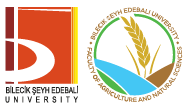Mevlana Exchange Programme is a programme which aims the exchange of students and academic staff between the Turkish higher education institutions and higher education institutions of other countries. With the regulation published in August 23, 2011 (num: 28034), students and academic staff exchange between Turkish higher education institutions and higher education institutions of other countries has been possible. The programme includes all higher education institutions throughout the world without discriminating between the geographical borders. The higher education institutions of EU countries benefiting from Erasmus programme will not be included in Mevlana Exchange Programme in 2014-2015 academic year. Students may study abroad for one (minimum) or two (maximum) terms and academic staff may lecture abroad from one week (minimum) to three months (maximum). Accordingly, students and academic staff from any country may benefit from this programme being hosted by Turkish higher education institutions in order to study or lecture.
The original name of Mevlana, from whom the name of the programme is inspired, is Muhammed Celaleddin. Mevlana was born in 1207 in Belh of Horasan distinct that is now in the border of Afghanistan. The name “Mevlana” was used by Sultan Veled, §ems-i Tebrizi and his lovers, and virtually is a universal symbol which identifies with him. Also, he is known as Rumi by the western people. Mevlana lived in the 13th century, but as a sufi who got beyond the ages with his works, did not make any discrimination between people as indicated in his verse “Come, come whoever you are”. As well as his mercy, voluntary and unlimited humanity, he had endless tolerance and he impressed not only the world of Islam but also the whole humanity. He is accepted worldwide as an intellectual with his point of view to the people and life. UNESCO, due to the 800th anniversary of Mevlana’s birth, declared the year 2007 as Mevlana and Tolerance year. Throughout his education, he visited the educational institutions of various cities in different countries not only as a student but also a scholar. Mevlana attributed great importance to “change” in his philosophy throughout his lifeHe is also the author of the important works like Masnavi, Divan-i Kebir, Fihi Mafih, Mektubat and Mecalis-i Seba.
The students registered in formal education programmes at higher education institutions in Turkey (on condition that the higher education institutions signed a bilateral Mevlana Exchange Protocol) may benefit from Mevlana Exchange Programme. Additionally, all academic staff who work in a national or foreign higher education institution, on condition that the higher education institutions signed a bilateral Mevlana Exchange Protocol, may benefit from Mevlana Exchange Programme.
In order to be a Mevlana Exchange Programme student – The students must be studying at associate degree, bachelor degree, master degree or phd degree of higher education programmes – Grade point average (GPA) of associate degree and undergraduate students must be at least 2,5 on a four point scale. – Grade point average (GPA) of graduate students (MA, PhD) must be at least 3.00 on a four point scale. – 50% language score + 50% GPA o The students studying in their first year at associate or bachelor degree and the students of preparation classes and scientific preparation programmes of graduate degrees can not participate in this programme at their first semester.
The students may apply to the Mevlana Exchange Programme unit of his/her university after filling the required forms properly.
Students may study abroad for one (minimum) or two (maximum) semesters. Semester periods may be different considering the education systems but the total exchange period can not exceed one academic year. Academic staffs also may participate in Mevlana Exchange Programme. Academic staff may lecture abroad from one week (minimum) to three months (maximum).
Students do not pay any tuition fees to the host institution during the programme, but they continue to pay the obligatory tuition fees to their home institutions. They do not pay any extra fee to the host institution within the scope of the exchange programme.
As the course(s) to be taken in the host institution are officially agreed to be counted in advance within the Learning Protocol, the students do not repeat any courses/semesters when they return.
Mevlana Exchange Programme students continue to take their other scholarships and grants in their home countries and they have to do registration in their home institutions. They pay tuition fee to their home institution if they are supposed to and they do not pay any other tuition fee to the host institution. The scholarship amount to be paid to the Mevlana Exchange students differs according to the life standards of the country of the host institution. Within the context of Mevlana Exchange Programme, the programme students can be paid up to three times of the amount that is monthly paid to bachelor degree students according to the Law no.5102 on Granting Scholarship and Loan to the Higher Education Students and in the ratios determined by Council of Higher Education Executive Board. Incoming students from other countries to Turkish higher education institutions are granted according to the ratios determined by Council of Higher Education Executive Board. In terms of the scholarships that will be paid to the students, 70% of the scholarship amount is paid monthly. For the student’s remaining grant payment, the ratio of total credits of the succeeded courses to the courses that the student is obliged to take as obligatory courses will be considered.
Within the scope of Mevlana Exchange Programme, travel allowance stated in the Travel Expense Law no.6245 may be paid to incoming and outgoing academic staff while travel allowance and additional course fees may be paid as stated in Travel Expense Law no.6245 and article 10 of the Law no.2547. CHE Executive Board is authorized to determine additional course fees due to the countries and titles.
Click for detailed information
